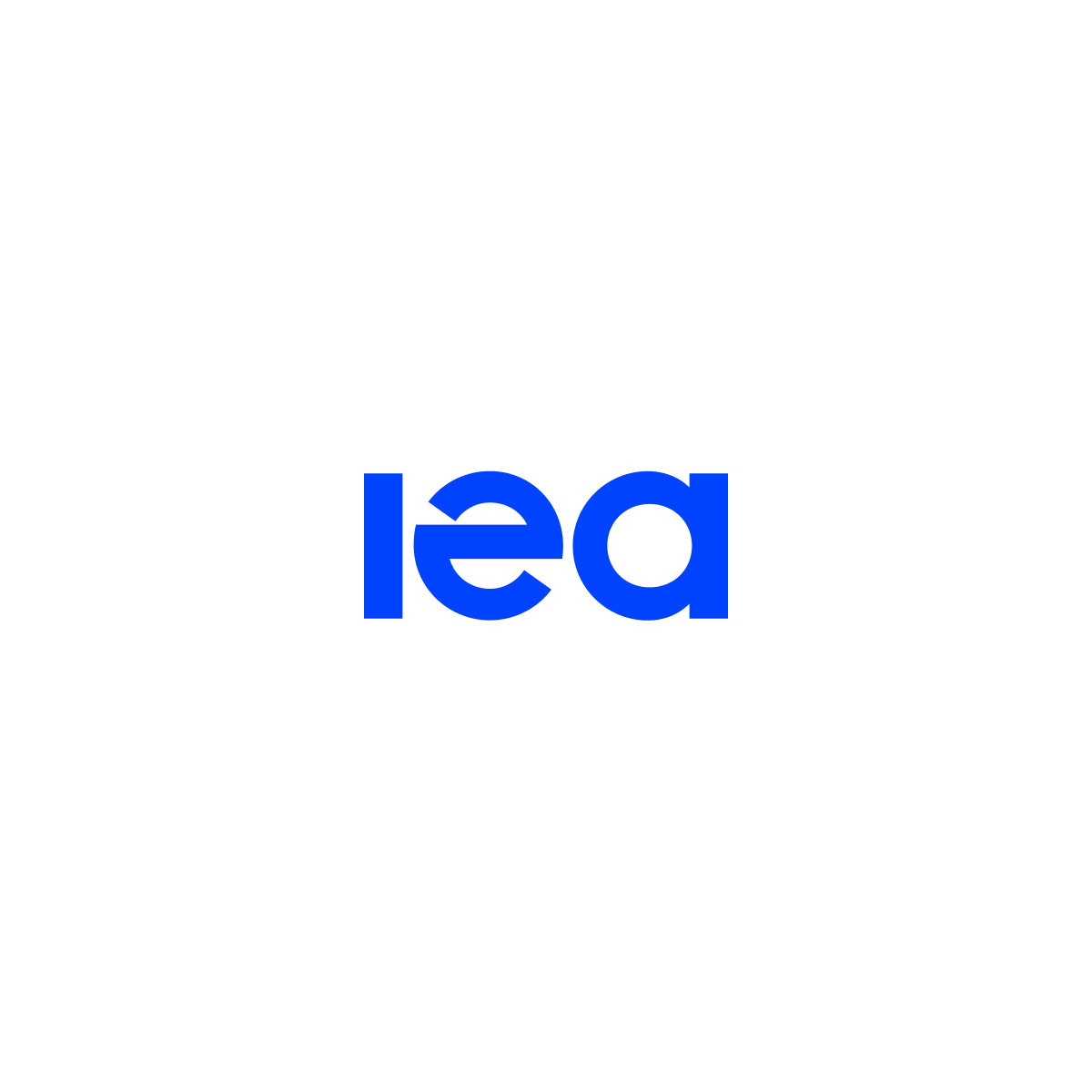- CDP ‘A’ list achievement for Mobico’s environmental leadership | Mobico Group
- APG|SGA : receives top score of A in the global CDP rating marketscreener.com
- Citizen Earns Place On CDP A List For Climate Leadership WatchPro
- Ricoh named to CDP’s double A List for the third consecutive year WebWire
- Ecolab Earns Double ‘A’ Rating from CDP for Leadership in Water and Climate Performance Business Wire
Category: 3. Business
-
CDP ‘A’ list achievement for Mobico’s environmental leadership | – Mobico Group
-

When a $300 Million Fire Revealed the Hidden Cost of Underinsurance
Acting on the insured’s instructions, Kroll’s Fixed Asset Advisory Services Team mobilised quickly, deploying a full valuation team on site to conduct a detailed inspection of all buildings, plant and machinery across the facility. Our specialists catalogued every piece of production equipment, capturing critical details including make, model and capacity data for each asset. We then conducted an independent replacement cost analysis for all machinery and supporting systems, ensuring accuracy and defensibility. Concurrently, our team developed a building-by-building valuation that incorporated detailed assessments of size, construction type and finish levels. Throughout the process, Kroll collaborated closely with the insured’s risk team and the broker’s claims representatives to ensure complete transparency and alignment during the claims review. The resulting valuation established accurate reinstatement values for both buildings and plant and machinery, providing a credible, insurer-accepted benchmark for the loss settlement.
Continue Reading
-

IEA to host Mission Innovation Secretariat in step to enhance international energy technology cooperation – News
Mission Innovation’s 24 member governments from around the world approve basing the secretariat at IEA headquarters, cementing collaboration between the organisations
The International Energy Agency will host the Mission Innovation Secretariat, a global government initiative that works to catalyse action and investment in research, development and demonstration of advanced energy technologies.
The decision for the Mission Innovation Secretariat to join several other global initiatives at the Paris headquarters of the IEA, the world’s energy authority, has been approved by the member governments of both organisations.
Mission Innovation was launched in 2015 with the goal of helping to make advanced energy technologies affordable, attractive and accessible for all. It meets annually at Ministerial level, bringing together a large network of governments and partner organisations under the leadership of its 24 Members: Australia, Austria, Brazil, Canada, Chile, China, Denmark, the European Commission, Finland, France, Germany, India, Italy, Japan, Korea, Morocco, the Netherlands, Norway, Saudi Arabia, Spain, Sweden, the United Arab Emirates, the United Kingdom and the United States.
“I am delighted to welcome Mission Innovation to the IEA, and I would like to thank the Member governments of MI for their trust and confidence in conferring this responsibility on our Agency,” said IEA Executive Director Fatih Birol. “It’s excellent news for international cooperation on energy technologies and will strengthen the work of both the IEA and MI as we work together to spur greater innovation worldwide to make energy more secure, affordable and sustainable.”
Continue Reading
-

Innovative Neuromorphic Vision Sensors (INVISIONS) workshop
Join us on 5 and 6 February for the Innovative Neuromorphic Vision Sensors (INVISIONS) workshop organised by the JRC. The event will be in hybrid format, both in person and online. Registrations are open until 28 January 2026.
The workshop aims to promote scientific exchange among researchers, academics, and practitioners working on Innovative Neuromorphic Vision Sensors. It will bring together experts from computer vision, neuromorphic cameras, and related fields, from both academia and industry, alongside JRC experts. The goal is to stimulate cross-disciplinary discussion, share insights, and explore the future of neuromorphic approaches to computer vision and their broader implications. The workshop will serve as a platform for a deeper understanding of neuromorphic vision sensors and their potential impact on technological advancement and policy development.
Please register to the event by clicking below. Registered participants will receive the link to the live streaming a few days in advance.
Continue Reading
-
Access Denied
Access Denied
You don’t have permission to access “http://www.alvarezandmarsal.com/press-release/alvarez-marsal-adds-restructuring-managing-director-to-expand-offering-to-education-providers-and-funders” on this server.
Reference #18.42173317.1768214797.9250d593
https://errors.edgesuite.net/18.42173317.1768214797.9250d593
Continue Reading
-

65% rise in Self Assessment payments via the HMRC app
- Almost 340,000 Self Assessment filers have already paid their tax bill using the HMRC app.
- It is quick and easy to pay via the HMRC app and set up payment reminders.
- Taxpayers need to file their tax return and pay tax they owe by 31 January.
The number of people using the HMRC app to pay their Self Assessment tax bill has increased by nearly 65%. Almost 340,000 people have used the HMRC app to pay their Self Assessment tax since 6 April 2025, an increase of 132,788 people compared to the same period last year.
Self Assessment customers need to file their tax return online for the 2024 to 2025 tax year and pay any tax owed by 31 January 2026. HM Revenue and Customs (HMRC) is encouraging those yet to start theirs, to go to GOV.UK and do it now. Anyone who misses the deadline could be subject to an automatic £100 penalty.
Filing tax returns ahead of the deadline means knowing how much tax to pay sooner. It is quick and easy to pay via the HMRC app and set up payment reminders to make sure the deadline isn’t missed.
Myrtle Lloyd, HMRC’s Chief Customer Officer, said:
The Self Assessment deadline is less than one month away, and thousands of people have already paid their tax bill via the HMRC app. It is quick and easy to do, and you can also see your payment history. Search ‘download the HMRC app’ on GOV.UK to access the app and make your Self Assessment payment.
People who are unable to pay any tax owed in full may be able to set up a Time To Pay arrangement, if they meet the eligibility criteria and they owe less than £30,000.
Alternative options include paying directly through a bank account, direct debit or paying online via GOV.UK. A full list of payment options can be found on GOV.UK.
HMRC expects more than 12 million tax returns to be filed by the deadline. Those who miss the deadline will be issued with a penalty:
- an initial £100 fixed penalty, which applies even if there is no tax to pay, or if the tax due is paid on time
- after 3 months, additional daily penalties of £10 per day, up to a maximum of £900
- after 6 months, a further penalty of 5% of the tax due or £300, whichever is greater
- after 12 months, another 5% or £300 charge, whichever is greater
There are also additional penalties for paying late of 5% of the tax unpaid at 30 days, 6 months and 12 months. If tax remains unpaid after the deadline, interest will also be charged on the amount owed, in addition to the penalties above.
Customers who need assistance to complete their Self Assessment can access support and guidance online 24/7, including YouTube videos, webinars, digital assistant and step-by-step guidance covering different sections of a tax return. Most queries can be resolved online.
Customers who need to speak to an adviser can call HMRC, Monday to Friday, 8am to 6pm. Phone lines close on Friday 30 January and reopen on Monday 2 February – after the deadline. For full phone support, contact HMRC before Friday 30 January. On Saturday 31 January, HMRC will offer webchat support through its Online Services Helpdesk.
The new High Income Child Benefit Charge (HICBC) PAYE digital service means thousands of Child Benefit claimants who are only in Self Assessment to pay HICBC can choose to pay the charge back through their tax code.
Eligible customers can call HMRC before the filing deadline and tell HMRC that they want to be removed from Self Assessment to use the digital service. Where a tax return has already been filed, customers can choose to stop from the following tax year. HMRC will then amend their tax code and they will be registered to pay HICBC through PAYE.
Customers do not need to include their 2025 Winter Fuel Payment, or Pension Age Winter Heating payment in Scotland, on their tax return for the 2024 to 2025 tax year as payments received in Autumn 2025 will be recovered in the 2025 to 2026 tax return, due by 31 January 2027.
Self Assessment customers are sometimes targeted by criminals and should never share their HMRC login details with anyone, including a tax agent, if they have one. HMRC scams advice is available on GOV.UK.
Further Information
More information on Self Assessment
339,490 customers paid their Self Assessment tax bill via the HMRC app between 6 April 2025 and 4 January 2026, compared to 206,702 people between 6 April 2024 and 4 January 2025.
People who have sold assets such as shares after 30 October 2024 need to be aware of changed rates of Capital Gains Tax for the disposal of assets when completing their Self Assessment tax return as it won’t automatically calculate the correct amount of Capital Gains Tax due. Instead, they may need to work out an adjustment to the tax automatically calculated using the adjustment calculator on GOV.UK.
Sole traders and landlords with a turnover above £50,000 will be required to use Making Tax Digital (MTD) for Income Tax from 6 April 2026 and be required to submit quarterly summaries of their income and expenses to HMRC. HMRC is urging eligible customers to act now and sign up to Making Tax Digital as this is the best way to get ahead, giving you extra time to select software and familiarise yourself with the new service. Agents can also register their clients via GOV.UK.
HMRC wants to help you get your tax right. Lots of information and support is available which includes:
Continue Reading
-

Draft law n°8669 on the deferred payment of the minimum share capital of S.à r.l.
The reform seeks to modernize Luxembourg company law, ease operational constraints at incorporation (notably those related to AML/KYC checks), and align domestic practice with the flexibility observed in several neighboring jurisdictions.
The Draft Law proposes to amend the law of August 10, 1915 on commercial companies (the 1915 Law) to allow the deferral in time of the payment of the minimum share capital of a S.à r.l., set at EUR12,000 and currently fully payable upon incorporation. It draws lessons from a requirement dating from 1933 that has become ill-suited to contemporary realities, particularly the time needed to open bank accounts due to AML/KYC checks, which slows the setting up of vehicles and harms the market’s competitiveness when tight timelines apply.
1. Proposed mechanics: deferred payment (up to 12 months) of share capital
The Draft Law amends Article 710-6 of the 1915 Law to enshrine the following principle: the share capital must be fully subscribed upon incorporation, but its payment may be deferred for up to twelve months, in accordance with the terms set out in the articles of association; the same option applies to any share premium provided for at incorporation. Foundering shareholders will have a choice between full payment at incorporation and deferred payment, enabling, in particular, the bank account to be opened afterwards without delaying incorporation.
The articles of association must govern the procedures and triggers for capital calls and may provide mandatory due dates or authorize the managers to make calls based on cash needs. No minimum paid-up amount is required at incorporation.
The notary’s role is adjusted: the notary must verify full subscription and, where applicable, payments made on the date of incorporation, but is not required to check subsequent deferred payments.
2. Safeguards
- Any amount contributed above the minimum share capital must be fully paid up at incorporation
- Contributions in kind (and any related premiums) must be fully paid up at incorporation
- Shares issued after incorporation (and any related premiums) must be fully paid up at the time of their issuance
3. Liability, transparency, and protection of third parties
The Draft Law transposes, mutatis mutandis, mechanisms inspired by the public limited liability company regime:
- Joint and several liability of the founders for the portion of the capital not validly subscribed and for effective payment upon expiry of the twelve-month period.
- Adjustment of the transferor’s liability in the event of a transfer of shares that are not fully paid up, with joint recourse against the transferee and its successors.
- Suspension of the voting rights attached to shares in default of payment after a proper call for funds.
A transparency requirement is introduced: publication, following the balance sheet, of the list of shareholders who have not fully paid up their shares (and any premium) together with the amounts due. In addition, where corporate documents mention the capital, they must, where applicable, indicate the portion not yet paid and, in the case of an increase, the portion not yet subscribed.
4. Simplified S.à r.l. (S.à r.l.-S)
Article 720-4 of the 1915 Law is adapted to extend deferred payment to all capital subscribed at incorporation of S.à r.l.-S, where contributions are in cash.
5. Practical scope and next steps
The reform should speed up the incorporation of Luxembourg special purpose vehicles and strengthen the attractiveness of Luxembourg by aligning with European practices.
The new regime will apply to incorporations after the law enters into force. The text is at the very beginning of the legislative process and must obtain the required opinions, notably from the Council of State.
AML/CTF requirements remain unchanged and fully applicable at incorporation.
6. Points of attention for commercial companies
The reform requires precise drafting of the articles to precisely govern the timetable, modalities, and powers for capital calls, and to anticipate the consequences of any failure to pay, notably the suspension of voting rights and the disclosure of amounts due, as well as the implications in the event of a transfer of unpaid shares and the twelvemonth deadline weighing on the founders.
Continue Reading
-

Upcoming webinar: Energy & Infrastructure Legal Outlook 2026, Jessica Hargreaves, Joanna Addison
Join us for the third session in our exclusive Energy Transition Webinar Series as we explore the Energy & Infrastructure Legal Outlook 2026 and what it means for those shaping and investing in the energy transition.
On Tuesday 10 February, our panel of experts will explore the latest global developments across key markets, highlighting the legal and regulatory changes to watch in 2026 and beyond.
Register here
Continue Reading
-

Guillaume Sauzedde takes over as Regional Managing Director for Europe
Copenhagen – With the start of the new year, Guillaume Sauzedde has assumed the role as Regional Managing Director for Europe Region. The French national with over 25 years’ experience in the logistics industry is no stranger to the employees and customers in Maersk’s largest Region. He joined Maersk in 2024 as Head of Logistics & Services for Europe Region after holding managing director roles for CEVA Logistics (Central & Eastern Europe Area MD and Regional MD Middle East & Africa) and Kühne + Nagel (Country MD Poland and SVP Contract Logistics in Central & Eastern Europe).
I am looking forward to continuing serving our customers together with the great Maersk teams I got to know over the past 16 months with the company. Over the past years, Maersk has established itself with an extensive logistics footprint across Europe including ownership and control of decisive assets and expertise across all parts of the supply chain. It’s exciting to have such a powerful and differentiating offering for our customers in these disruptive times and to deliver resilient, value adding end-to-end solutions to them.Guillaume Sauzedde is succeeding former head of Europe Region, Aymeric Chandavoine, who has left Maersk end of the year to take on a new position outside the industry. Sauzedde lives in Warsaw and will be based in Maersk’s main office in the Polish capital while also commuting regularly to the Headquarters in Copenhagen.
About Maersk
A.P. Moller – Maersk is an integrated logistics company working to connect and simplify its customers’ supply chains. As a global leader in logistics services, the company operates in more than 130 countries and employs around 100,000 people. Maersk is aiming to reach net zero GHG emissions by 2040 across the entire business with new technologies, new vessels, and reduced GHG emissions fuels*.
*Maersk defines “reduced GHG emissions fuels” as fuels with at least 65% reductions in GHG emissions on a lifecycle basis compared to fossil of 94 g CO2e/MJ.
For further information, please contact:
Rainer Horn
Senior Media Relations Manager, Logistics & Services business
Email Rainer HornContinue Reading
-
Access Denied
Access Denied
You don’t have permission to access “http://www.alvarezandmarsal.com/press-release/tom-parkinson-appointed-as-managing-director-in-london-to-strengthen-the-firm-s-carve-out-capabilities” on this server.
Reference #18.42173317.1768212818.91cf13ba
https://errors.edgesuite.net/18.42173317.1768212818.91cf13ba
Continue Reading